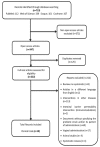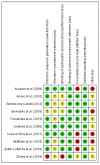Probiotics Dietary Supplementation for Modulating Endocrine and Fertility Microbiota Dysbiosis
- PMID: 32182980
- PMCID: PMC7146451
- DOI: 10.3390/nu12030757
Probiotics Dietary Supplementation for Modulating Endocrine and Fertility Microbiota Dysbiosis
Abstract
Human microbiota seems to play a key role in endocrine and reproductive systems. Fortunately, microbiota reproductive dysbiosis start to be treated by probiotics using typical species from genus Lactobacillus. This work presents the compiled and analysed results from the most up-to-date information from clinical trials regarding microbiota, fertility, probiotics and oral route administration, reviewing open access scientific documents. These studies analyse the clinical impact of probiotics administered on several endocrine disorders' manifestations in women: mastitis; vaginal dysbiosis; pregnancy complication disorders; and polycystic ovary syndrome. In all cases, the clinical modulation achieved by probiotics was evaluated positively through the improvement of specific disease outcomes with the exception of the pregnancy disorders studies, where the sample sizes results were statistically insufficient. High amounts of studies were discarded because no data were provided on specific probiotic strains, doses, impact on the individual autochthon microbiota, or data regarding specific hormonal values modifications and endocrine regulation effects. However, most of the selected studies with probiotics contained no protocolised administration. Therefore, we consider that intervention studies with probiotics might allocate the focus, not only in obtaining a final outcome, but in how to personalise the administration according to the disorder to be palliated.
Keywords: doses; dysbiosis; endocrine; fertility; microbiota; probiotics.
Conflict of interest statement
The authors declare no conflict of interest.
Figures



References
Publication types
MeSH terms
LinkOut - more resources
Full Text Sources
Other Literature Sources
Medical
Molecular Biology Databases

